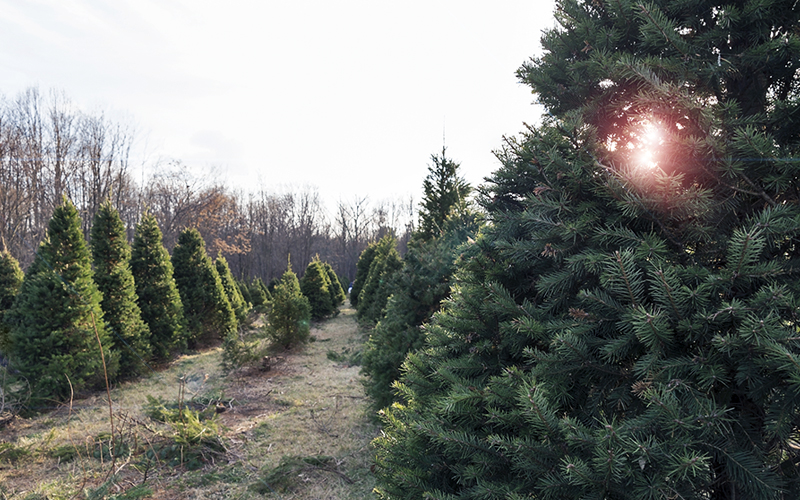
I know, I know, Christmas is just a few days away—why think about soil right now? The truth is, now is the perfect time to celebrate soil because many of you probably have a tree in your homes that was just recently growing in soil. What better reminder is there to appreciate the soil that grows such wondrous, good-smelling things as Christmas trees? What better time is there than as we feast on fruits and vegetables, animals and birds, baked goods, and all the soil’s bounty, to think about where all this deliciousness comes from? It comes from the soil. So before this year comes to a close, we need to take a minute to celebrate the fact that 2015 has been the International Year of Soils, as designated by the United Nations.
Raise your hand if you take the soil for granted and don’t think about it very often. I know that many of my readers DO think about soil. Organic farmers have been known to call themselves “dirt farmers” because they know that if you make good soil, you can grow anything!
I remember hearing when I was young that the soil was a “limited resource” and once it was gone, we’d no longer be able to survive—except perhaps with test-tube food. Well, one of the great things about time is that we’re constantly learning new things as it passes, and what we’ve learned is that we can grow new soil. It starts with compost, of course, which is really just returning the living matter and waste we harvest back into the earth (think leaves falling from trees and coffee grounds and eggshells tossed on a compost pile).
But the real action heroes of the soil are tiny microscopic creatures—many billions of which haven’t even been identified yet. Bacteria, fungi, microorganisms, and even things we do recognize, such as ants and worms, all make up the soil’s microbiome.
These days, microbiomes are getting some serious recognition from scientists…even the ones in our own guts! It’s clear that everything is alive and connected and working together to create this thing we call health. That’s why we need to respect and appreciate all of it. This isn’t totally new information. In fact, I named my daughter after Lady Eve Balfour, who wrote a book called The Living Soil…in 1943. (And as you may know, my grandfather, JI Rodale, came up with the slogan “Healthy soil, healthy food, healthy people” back in 1942 when he launched Organic Gardening. So you could say soil is in my blood.)
This year has been a great year for soil because it’s finally started to be taken seriously. Even The New York Times is starting to report on the fact that organic soil can play a major role in solving the climate crisis. It’s amazing to me how long it can take things to get into the human zeitgeist. Here at Rodale, we’ve been talking about the power of the soil for 70 years (with knowledge of its power to sequester carbon for the past 10), and I still meet super-intelligent people, often scientists, who ask, “Why haven’t I heard this before?” Well, hear it now. Spread the word. And spread some compost while you’re at it.
Celebrate the close of the year of the soil by making sure that every day going forward, you respect and honor the soil in whatever way you can (go organic, plant plants, make compost).
I leave you with this quote from Lady Eve Balfour, which other than some language (she was British, after all) still feels modern in its idea. In fact, we’re only just now truly making the connection between things with an emphasis on wholeness and interconnectedness.
There are two motivations behind an ecological approach—one is based on self-interest, however enlightened, i.e. when consideration for other species is taught solely because on that depends the survival of our own.
The other motivation springs from a sense that the biota is a whole, of which we are a part, and that the other species which compose it and helped to create it, are entitled to existence in their own right. This is the wholeness approach and it is my hope and belief that this is what we, as a federation, stand for.
If I am right, this means that we cannot escape from the ethical and spiritual values of life for they are part of wholeness. To ignore them and their implications would be to pursue another form of fragmentation. Therefore, I hold that what we have to teach is the attitude defined by Aldo Leopold as ‘A Land Ethic.’ This requires that we extend the concept of Community to include all the species of life with which we share the planet. We must foster a reverence for all life, even that which we are forced to control, and we must, as Leopold put it—’Quit thinking about decent land use as solely an economic problem, but examine each question in terms of what is ethically and aesthetically right, as well as what is economically expedient. A thing is right when it tends to preserve the integrity, stability and beauty of the biotic community. It is wrong when it tends otherwise.’




No comments yet.